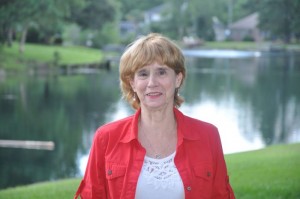First in a series - the smoking gun in the prescription opioid/heroin death toll
 Why are organizations advocating for families devastated by death and addiction in record numbers not calling for treatment of the disease of addiction?
Why are organizations advocating for families devastated by death and addiction in record numbers not calling for treatment of the disease of addiction?
Marianne Skolek Global News Centre
(MYRTLE BEACH) Many parents held a “talk to your children about addiction over dinner on 11/19.” It was a means of “educating” children about drugs and addiction. This dialogue over dinner was encouraged by many organizations some funded by the pharmaceutical industry such as Partnership for a Drug Free Kids. I don’t think there is a family or a teenager in this country who has not lost a relative or friend due to prescription opioid/heroin addiction. So to encourage families to “talk about addiction” on a particular night at the dinner table is interesting.We don’t encourage families to discuss cancer over the dinner table on a designated night. We treat cancer as the disease it is. Why don’t we treat addiction as the disease it is?
Why are organizations advocating for families devastated by death and addiction in record numbers not calling for treatment of the disease of addiction? Let pharma fund that. Purdue Pharma’s owners, the Sackler family were recently named one of the 10 wealthiest families in the U.S. — $14 billion made off their drug, OxyContin — nicknamed “heroin in a pill.”
What if you knew that these same pharmaceutical companies who fund Partnership for a Drug Free Kids were funding physicians such as Lynn R. Webster, MD who recently twittered on 11/14/15 to the chronic pain patient “We encourage you all to keep talking/sharing/exploring.”
You may be interested in knowing something about Dr. Webster and his idea of “talking and sharing” to chronic pain patients while funded by pharma.
In 2013, Lynn Webster, MD was president of the American Academy of Pain Medicine (AAPM). One of the financial supporters of the AAPM is the maker of OxyContin, Purdue Pharma. Partnership for a Drug Free Kids is also financially supported by Purdue Pharma.
I have written about the infamous Dr. Webster in the past (links to news articles below). Webster’s pain clinic in Salt Lake City, Utah was raided by the Drug Enforcement Agency (DEA) in 2010 for up to 100 deaths in his clinic. An investigation into Webster’s prescribing practices was launched. There were malpractice lawsuits filed against him. The DEA failed to charge Webster for the deaths in his pain clinic which the doctor attributed in many cases to suicide. Webster’s pain clinic closed and his ability to write opioid prescriptions was rescinded. But did that end Webster’s lucrative association with the pharmaceutical industry? No he reinvented himself as pharma’s golden “recreational drug use clinical trial researcher.”
“We need new ways to prevent people from harming themselves essentially” Webster said as he heads a pharmaceutical paid trial on new abuse-deterrent drug formulations. He further stated “One approach is to come up with a new kind of pain pill that’s hard to abuse, and pay individuals to use them to see if they can get high.” At PRA Health Sciences in Salt Lake City, where Webster is VP of Scientific Affairs, this unique approach is underway. Hundreds of recreational drug users pass through the doors of the clinic to test out the next generation of prescription pain pills.
At PRA’s research facility, several human abuse liability trials are underway. They’re funded by pharmaceutical companies who are looking to make abuse-deterrent formulations. These pills are designed with tamper-proof technology. The goal is to see if real-life recreational drug users enjoy taking them as much as they do current pain pills. The hope is that they won’t. If the pills are successful in deterring abuse, they can receive a special drug label. The U.S. Food and Drug Administration has strongly encouraged pharmaceutical companies to conduct these studies. The FDA is not conducting these studies. If a new pill can show it has abuse deterrence, it can receive a special marketing label from the FDA based on pharma’s own studies.
The clinical trials do not enroll addicts, who are screened out using a “special protocol.” Thanks to the FDA and the National Institutes of Health, the identities of the recreational drug users are protected and kept confidential from law enforcement. PRA Health Sciences is one of a handful of centers in the North America who do these trials. Dr. Webster heads up these studies at PRA.
Most recruits are young, and male. They hear about the Human Abuse Liability studies through friends and word of mouth.
“Many of them will come in with their friends and this becomes a cheap party where they can earn some money,” said Dr. Webster.
Participants get paid between $250 and $300 a day. They cannot leave the premises until the drugs have cleared their system. Some trials last up to a month. Subjects are housed in special dormitories and are paid well. One participant likened it to being on “a paid vacation where we’re treated like kings and fed well.”
Dr, Webster is clear that these tamper-proof or abuse-deterrent drugs won’t solve America’s addiction and abuse problem. He further states that in 70% of the cases, leftover prescription drugs are stolen from the medicine cabinets of loved ones. Addicts will just swallow more pills and wait for them to take effect.
No Dr. Webster 70% of cases are not leftover prescription drugs stolen from medicine cabinets as you are paid by pharma to tell the medical profession. Most overdoses and deaths are caused by exactly why your pain clinic was raided by the DEA and why you can no longer prescribe painkillers — the over-prescribing of dangerous opioids for chronic pain long-term. The disease is “addiction” not “medicine cabinets.”
Since Utah ranks 8th in the country in overdose deaths, it may be time for Utah’s Attorney General Sean Reyes to ask “why is this being allowed to happen in my state under my watch?”
Next Week - Smoking Gun - Should Congress be investigating Partnership for a Drug Free Kids finances?
LP - “The Intrepid” is unsinkable and will stay on course with my Captain navigating troubled waters. Much love for being my compass always.
__________________________________________________________________________________________
 Global News Centre’s Marianne Skolek, is an Investigative Reporter who focuses on the Prescription Opioid/Heroin Epidemic in the U.S. and Canada. In particular, Marianne has covered the criminal marketing of OxyContin going back to 1999 and continuing to the present.
Global News Centre’s Marianne Skolek, is an Investigative Reporter who focuses on the Prescription Opioid/Heroin Epidemic in the U.S. and Canada. In particular, Marianne has covered the criminal marketing of OxyContin going back to 1999 and continuing to the present.
In 2002, Marianne lost her daughter, Jill to prescribed OxyContin which her physician referred to as “mobility in a bottle.” It was, in fact, death in a bottle. After doing extensive research on the maker of OxyContin, Purdue Pharma, Marianne began working with the Department of Justice in Virginia in their criminal investigation into Purdue Pharma and in July 2007 was asked by the U.S. Attorney John Brownlee prosecuting the case to testify against the three CEO’s of Purdue Pharma, Michael Friedman, Paul Goldenheim, MD and Howard Udell, Chief Counsel. The CEO’s pleaded guilty to misleading the medical profession about the dangers of OxyContin. Marianne also testified against Purdue Pharma at a Judiciary Hearing of the U.S. Senate in July 2007.
In addition, a dangerous and highly addictive opioid named Zohydro has been approved by the FDA against their Advisory Committee’s advice and Marianne continues to alert Attorneys General, Senators and Congressmen as to the FDA’s irresponsibility in the out of control prescription opioid/heroin epidemic killing and addicting in the tens of thousands each year. Zohydro has been referred to as “heroin in a capsule” and its lowest dosage (10mg) contains twice as much hydrocodone as found in a Vicodin pill. The highest single dose of Zohydro contains as much hydrocodone as 5 to 10 tablets of Vicodin or Lortab. Zohydro mixed with alcohol can be fatal and has no abuse deterrent built in which will make it easy to crush and deliver a fatal dose of the opioid.
Currently Marianne has been instrumental in calling for the termination of Margaret Hamburg, MD, Commissioner of the FDA as well as Bob A. Rappaport, MD and Douglas Throckmorton, MD for their lack of commitment to safeguarding the American public against the prescription opioid/heroin epidemic. Marianne’s research, writing and contact with government agencies and attorneys has also exposed the heavily funded pain foundations set up by the pharmaceutical industry and their paid physician spokespersons who convinced the medical boards in 50 states and Canada that dangerous opioids such as OxyContin were less likely to be addictive. These physicians — in particular Scott Fishman, MD, J. David Haddox, DDS, MD, Perry Fine, MD, Lynn R. Webster, MD, Russell Portenoy, MD also downplayed the risks of addictive opioids in books as authors. These books are still available for sale and promoted to the medical profession.
Here are links to Marianne’s involvement in exposing the national conspiracy of the prescription opioid/heroin epidemic, the FDA, the pharmaceutical industry, their pain foundations and paid physician spokespersons.
http://www.salem-news.com/by_author.php?reporter=Marianne%20Skolek
http://www.youtube.com/watch?v=tmPG1VjD61U&list=UUWoHUEr4ZAbQOfIqtOArjgg&index=6&feature=plcp
https://www.facebook.com/photo.php?v=855537227796352&set=vb.658186307531446&type=2&theater



















 London
London
 Oregon
Oregon





Leave a Reply
You must be logged in to post a comment.